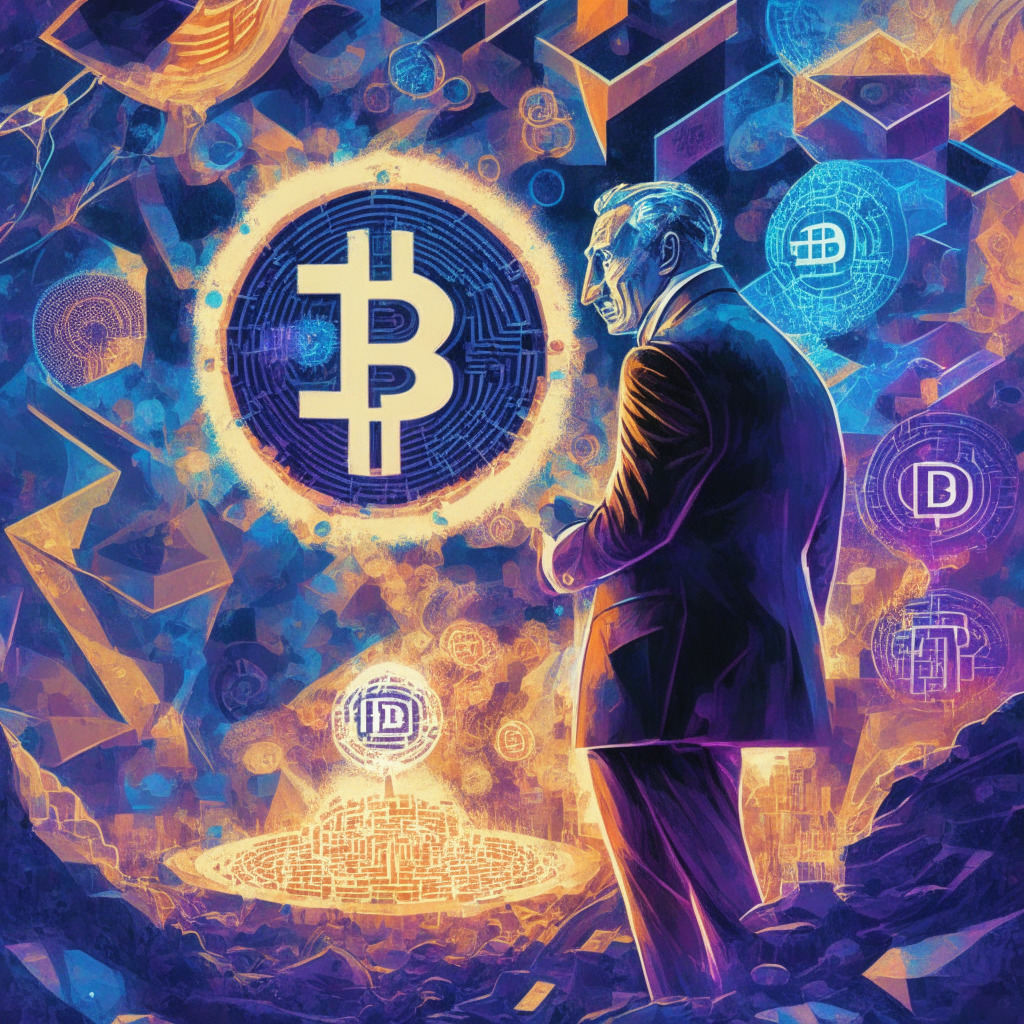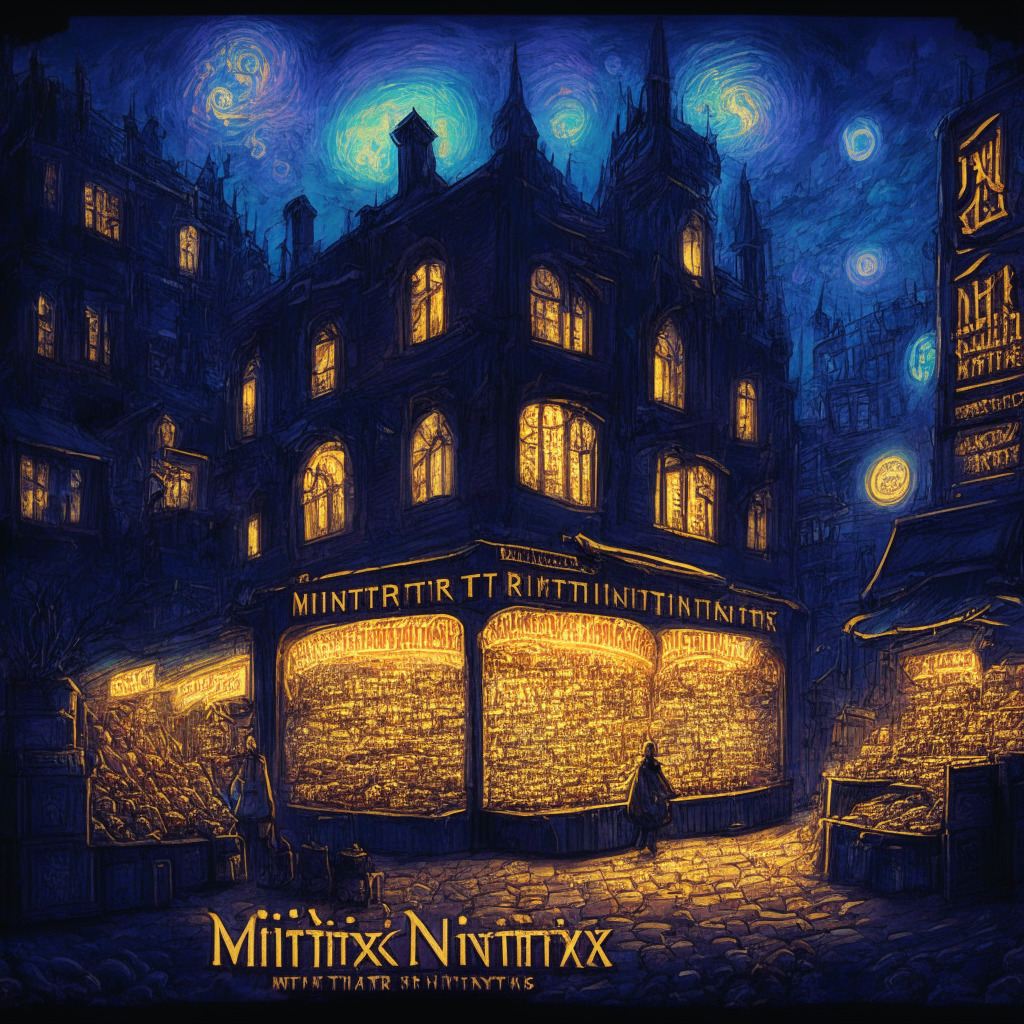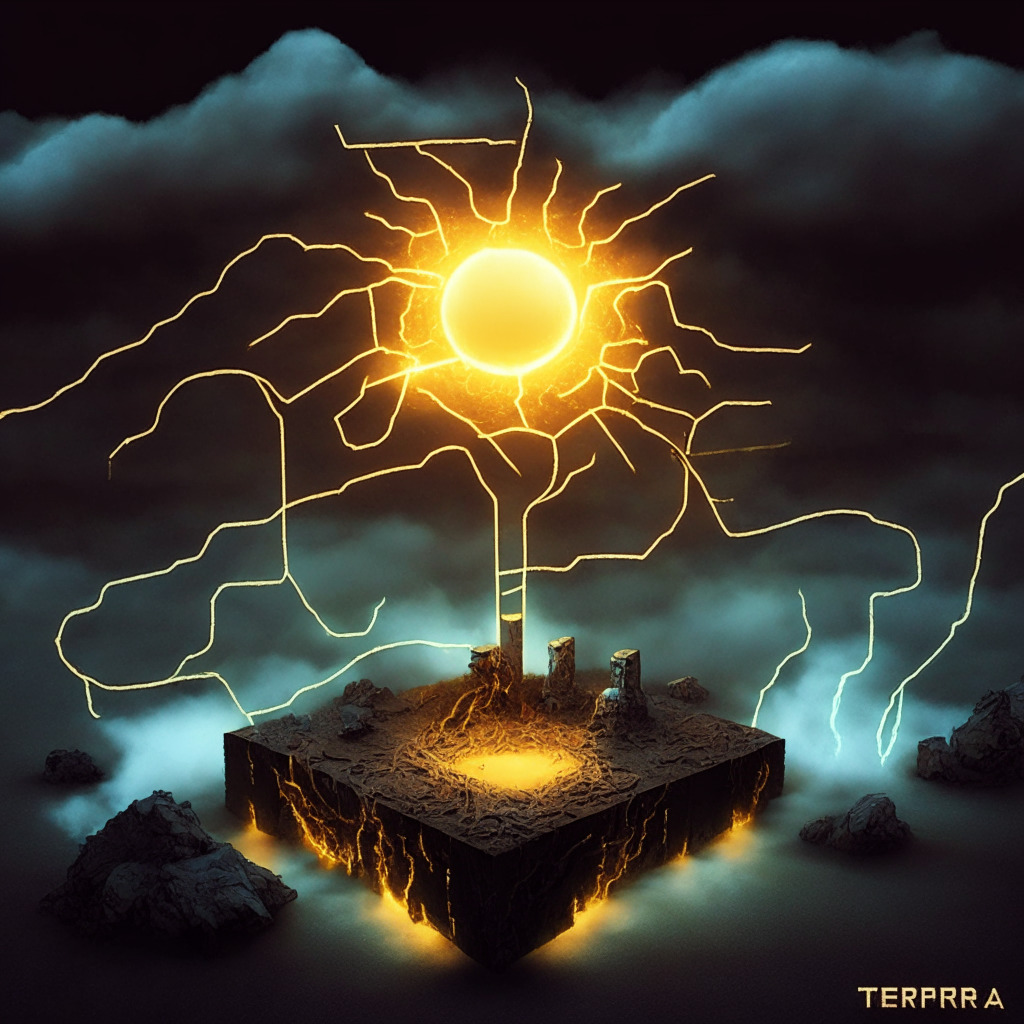“The SEC has taken action against Titan Global for non-compliance with custody regulations and misleading advertising. Titan made bold claims of up to 2,700% returns with unclear statements on crypto asset custody. The SEC’s stricter approach serves as a reminder about the perils of unchecked engagement in digital asset trading, signaling that a laissez-faire approach to trading digital assets is rapidly becoming a relic of the past.”
Search Results for: FLEX
Navigating the New Norm: Namibia’s Crypto Regulatory Stringency versus Flexibility
“Cryptocurrency firms in Namibia will operate under the newly sanctioned Virtual Assets Act, marking a regulatory shift from 2017 when crypto exchanges were considered illegal. Notably, the new regulation, referred to as a ‘skeleton’ for its initial form, raises both excitement and skepticism about the future of blockchain companies in the country.”
Ethereum’s EigenLayer Launch: Restaking Revolution and Its Impact on Security & Flexibility
Ethereum mainnet recently deployed EigenLayer, a restaking protocol supporting tokens like stETH, rETH, and cbETH, aimed at extending Ethereum’s security to bridges, oracle networks, and consensus mechanisms. With EigenLayer, stakers grant permission to smart contracts while earning rewards and delegating validation, enhancing security and offering flexibility for stakers, operators, and actively validated services.
Exploring Aave’s GHO Stablecoin: Unlocking Financial Flexibility and Bolstering Platform Growth
Aave’s ARFC proposal introduces GHO, a native stablecoin launching on Ethereum mainnet, offering users collateralized minting and financial flexibility. The Aave DAO treasury benefits from GHO loan interest, bolstering platform growth and showcasing commitment to user-centric innovations in decentralized finance.
Bitcoin Memecoins Debate: Network Congestion vs. Blockchain Flexibility and Growth
The recent surge in Bitcoin-based memecoins has caused network congestion and higher gas prices, leading some developers to contemplate removing these coins from the network. However, critics argue that memecoins have played a significant role in the growth of the Bitcoin blockchain, and their removal could hinder its flexibility as a digital asset platform. Open dialogue is needed to weigh the benefits and drawbacks while ensuring long-term sustainability.
Massive Baby Doge Token Burn: Addressing Exploitation Risks or Limiting Flexibility?
Baby Doge announces plans to burn 100 quadrillion tokens in a move to increase security and project integrity. The DAO-backed initiative aims to reduce exploitation risks, facilitate Ethereum bridging, and lower transaction fees, while addressing potential Binance Smart Chain disruptions.
Crucial Crypto Updates: The Bitcoin Slump, Crypto Aid Israel and The Rise of BitVM
Bitcoin’s value hovers at $27,653 as Robert F. Kennedy Jr, a crypto enthusiast, vies for presidency as an independent, proposing the reinforcement of the US dollar with Bitcoin among other assets. Cryptocurrency organizations, including Fireblocks, offer aid in the midst of the Israel crisis, suggesting possible integration of crypto in traditional finance systems. Robin Linus unveils BitVM, potentially importing Ethereum-level smart contracts to the Bitcoin sphere.
Coercing Cyber Criminals: The Dilemma of Crypto Bounty for Stolen Assets Recovery
“In the evolving blockchain technology landscape, securing crypto platforms against cyber breaches remains a pressing task. Instances like HTX using bounties to recover stolen funds hint at innovative strategies, but also present a dangerous precedent. Persistent advancements in blockchain security are therefore essential.”
Balancing Act: Supervising AI Vs. Regulating Cryptocurrencies – Who Gets the Upper Hand?
This article discusses a project launched by UNESCO and the Dutch government to study AI supervision across Europe, aiming to develop guidelines from best practices. It also highlights the contrast of some nations focusing heavily on AI regulations, while cryptocurrency protocols, such as for stablecoin transactions, are being neglected. The importance is stressed of striking a balance between embracing technological advances and ensuring proper regulation for consumer protection.
Pivotal Move: How the UK’s Regulatory Changes Could Shape the Global Crypto Landscape
“The United Kingdom could potentially leapfrog the US in Web3 crypto environments, contingent on an unconventional regulatory trajectory. Changes like curbing liabilities for DAO token holders and amending FCA’s KYC guidelines could catalyze growth in emerging technologies. Nonetheless, the crypto evolution is challenged by potential misuse and regulatory hurdles.”
European Crypto Regulation: Balancing Sustainability, Transparency and Freedom
The European Securities and Markets Authority (ESMA) has published its second consultation paper on cryptocurrency regulations, focusing on sustainable indicators for distributed ledgers, disclosure of insider information, technicalities within white papers, transparency measures and record-keeping for Crypto asset service providers. ESMA’s move aims to encourage a more sustainable, transparent, and accountable crypto-market.
Harnessing Volcanoes for Bitcoin: El Salvador’s Pioneering Lava Pool Project and its Global Implications
“El Salvador introduced the Lava Pool project, merging renewable geothermal energy with cryptocurrency mining, in a strategic blend of Volcano Energy’s infrastructure and Luxor Technology’s expertise to counter environmental concerns of digital currencies. It signifies El Salvador’s determination to integrate Bitcoin into its power infrastructure, becoming the first geothermally driven Bitcoin mining pool in the country.”
El Salvador’s Volcano Energy: Disrupting Crypto Mining with Renewable Power and Risking It All
El Salvador partners with Luxor Technology, with support from Tether, for its first renewable energy Bitcoin mining operation through Volcano Energy. This ambitious billion-dollar project aims to make El Salvador a powerhouse in renewable energy and Bitcoin mining. However, inherent challenges and critics question the appropriateness of using renewable energies for crypto mining.
Unpacking Project Atlas: A Centralized Perspective on Decentralized Markets
‘Project Atlas’, pioneered by Bank of International Settlements and various European Central banks, is developing a proof of concept system tracking on-chain and off-chain cryptocurrency transactions. The project aims to understand macroeconomic relevance of cryptocurrency markets and decentralized finance, offering transparency and potential risk mitigation.
Surge of HairyPlotterFTX and Innovation of Bitcoin Minetrix: Promise and Perils of Crypto Markets
“HairyPlotterFTX (FTX) has shaken the crypto world with an exceptional +5,000% overnight increase. It coincides with recent events concerning the renowned crypto figure, Sam Bankman-Fried, hinting at strategic planning. Meanwhile, Bitcoin Minetrix aims to transform Bitcoin mining with its Stake-to-Mine model, thus challenging industry dominance and offering small investors a potential game-changing opportunity.”
VanEck’s Ethereum Strategy Fund: A Promising Paradigm or Risky Experiment?
VanEck’s Ethereum Strategy Fund (EFUT), set to be listed on the Chicago Board Options Exchange, offers fully-standardized, cash-settled futures contracts. With approval from the Securities and Exchange Commission, these contracts provide exposure to futures without requiring direct exposure to the actual digital asset. This move illustrates the growing trend of crypto-based futures tailored for mainstream investors.
Unveiling the Crypto Crisis: The Rising Wave of Blockchain Cybersecurity Breaches in Q3 2023
The alarming increase in cybersecurity breaches in the blockchain resulted in a loss of over $685 million in the third quarter of 2023. This number rose by 59.9% from the previous quarter’s losses. With notable incidents spanning across 49 protocols and projects, these cybercrimes misappropriated almost $662 million. The vulnerability of the DeFi sub-sector has been specifically highlighted, as it lost a massive $2.8 billion in 2022.
PayPal’s NFT Venture: A Bold Leap into Blockchain or a Risk to Decentralization?
“PayPal’s recent patent application for a non-fungible token (NFT) purchase and transfer system boldy underscores the mainstream acceptance of blockchain technology. The filing suggests designs to leverage NFTs for tokenization, far beyond digital collectibles. However, it also proposes off-chain transactions potentially diverging from the philosophy of complete decentralization that attracted enthusiasts to blockchain technology.”
Huge Debates Arising Over Validator Commissions and Infrastructure Provider Funding in Terra Classic Community
The Terra Classic community debates two critical proposals: correcting an unintentional 0% validators’ commission rate, which current votes lean towards rejection, and the recognition and financial support for top-tier infrastructure provider, Allnodes which also currently faces rejection. Concurrently, BTCMTX offers an innovative Stake-to-Mine model making Bitcoin mining accessible.
Meta AI vs OpenAI’s ChatGPT: The Dawn of a New Social Media Interaction Era and Its Ramifications
“Mark Zuckerberg sets to launch Meta AI, interacting across platforms like Instagram and Facebook. Aiming to outdo OpenAI’s ChatGPT, Meta tailors AI products to distinct use cases and entertainment, scheduled to release to selected U.S users and integrate with upcoming smart glasses.”
Bitcoin vs. Bitcoin Minetrix: A New Contender in the Crypto Mining Arena
“Bitcoin Minetrix ($BTCMTX), offers a decentralized mining solution based on cloud computing where stakers earn credits for Bitcoin mining. Utilizing Ethereum’s secured smart contract platform, it helps reduce costs and automatically manages user allocations. Despite the enticing benefits, potential investors must consider market state and the ever-evolving crypto landscape.”
Taiwan’s Firm Stance toward VASPs: Stricter Crypto Regulation versus Industry Growth Potential
Taiwan’s Financial Supervisory Commission (FSC) is implementing new regulations to improve safeguards for crypto investors. These regulations seek to control virtual asset service providers (VASPs) like Binance, Kraken, and ByBit, emphasizing asset safety, self-regulation, and legal operation in Taiwan. This overhaul coincides with local exchanges forming a regulatory body, and precedes FSC’s expected 2023 takeover as Taiwan’s primary crypto regulator.
The Rain of Tokens: How Optimism’s 3rd Airdrop Fosters Blockchain Community Participation
“Layer 2 network Optimism launched a third airdrop of OP tokens, distributing 19.4 million tokens to over 31,000 wallets. The airdrop aimed to boost community involvement in the Optimism Collective’s delegation activity and to encourage users to vote in governance.”
Cry for Crypto Regulation: Ex-SEC Official Urges for Greater DOJ Involvement
Former SEC official John Reed Stark argues that the SEC’s current capabilities are insufficient to handle the growing, flexible crypto sector. Stark believes that the Department of Justice’s involvement is indispensable to impose penal measures as the SEC’s mandate restricts it to civil enforcement.
Deciphering the Unprecedented Alliance of Swarm and Wrapped.com in the DeFi Universe
The partnership between Wrapped.com and Swarm simplifies the conversion process across different blockchain networks, bridging industry divides. This collaboration infuses cross-chain technology with a custody-based solution, significantly influencing DeFi markets and rendering cross-chain crypto partnerships accessible to a broader audience. This may attract more institutional investments, marking a significant step in shaping the blockchain future.
Latency in Cryptocurrency Trading: A Barrier or a Competitive Edge?
“Latency in cryptocurrency trading significantly impacts the speed and flexibility of trades. Though achieving low latency can be challenging and costly due to investments in high-performance tech and regulatory compliance, its benefits in trade efficiency and competitiveness in the volatile crypto market are noteworthy.”
China’s Central Bank Stakes Digital Yuan’s Global Appeal: A Revolutionary Step or a Risky Leap?
China’s central bank has updated its official CBDC app to allow overseas visitors to purchase digital yuan tokens with foreign credit cards. The update reflects an unprecedented convenience, aiming to push the usage of mobile wallets of the CBDC, providing users with seamless online experiences, including refunds for any unused funds. This move widens the application of e-CNY, promoting its use for online financial exchanges on major platforms.
Navigating the Whirlwind: Crypto Market Dynamics amid Unpredictable Coin Movements
“Despite volatile movements in crypto markets, major coins like BTC and ETH have managed largely to stay above critical support levels. With traders caught between optimism and caution, the coming days may witness a showdown between buying and selling pressures.”
Unveiling Consensys Fellowship Program: Catalyst for Web3 Startups or Impractical Venture?
Blockchain leader Consensys introduces its first Consensys Fellowship Program, aiming to support Web3 startups. The non-equity program offers potential investments of up to $1.5 million, hands-on workshops, mentorship from industry professionals, and flexible part-time structure. It encourages innovative Ethereum use cases and startup growth.
Binance’s Stablecoin Delisting: A Regulatory Avalanche or Necessary Compliance Step?
“Binance plans to delist all stablecoins from its European platform by June 2024, complying with Europe’s tight regulation. The move, following the passing of Europe’s crypto regulation law, MiCA, could significantly impact the European crypto market. Meanwhile, the U.S. grapples with its digital currency dilemma, revealing distinct attitudes towards financial digitization.”
Traditional Finance Players Diving into Crypto: Progress or Path to Centralization?
“The recent trend of traditional finance players entering the cryptocurrency market has the potential to disrupt norms, increase flexibility, and power the underbanked. However, it also presents challenges, such as volatility, fraud, and security issues. Moreover, there’s a debate surrounding if this move could lead to centralization in an inherently decentralized space.”
Crypto Readiness Score: Analyzing World’s Crypto Hotspots and the Quest for Top Ranks
“Hong Kong retains its position as the most crypto-ready destination with a Cryptocurrency Readiness Score (CRS) of 8.36. Other notable players include Switzerland and the USA. India, emerging as the second-largest crypto market, highlights the dynamic and promising future of crypto technology.”































